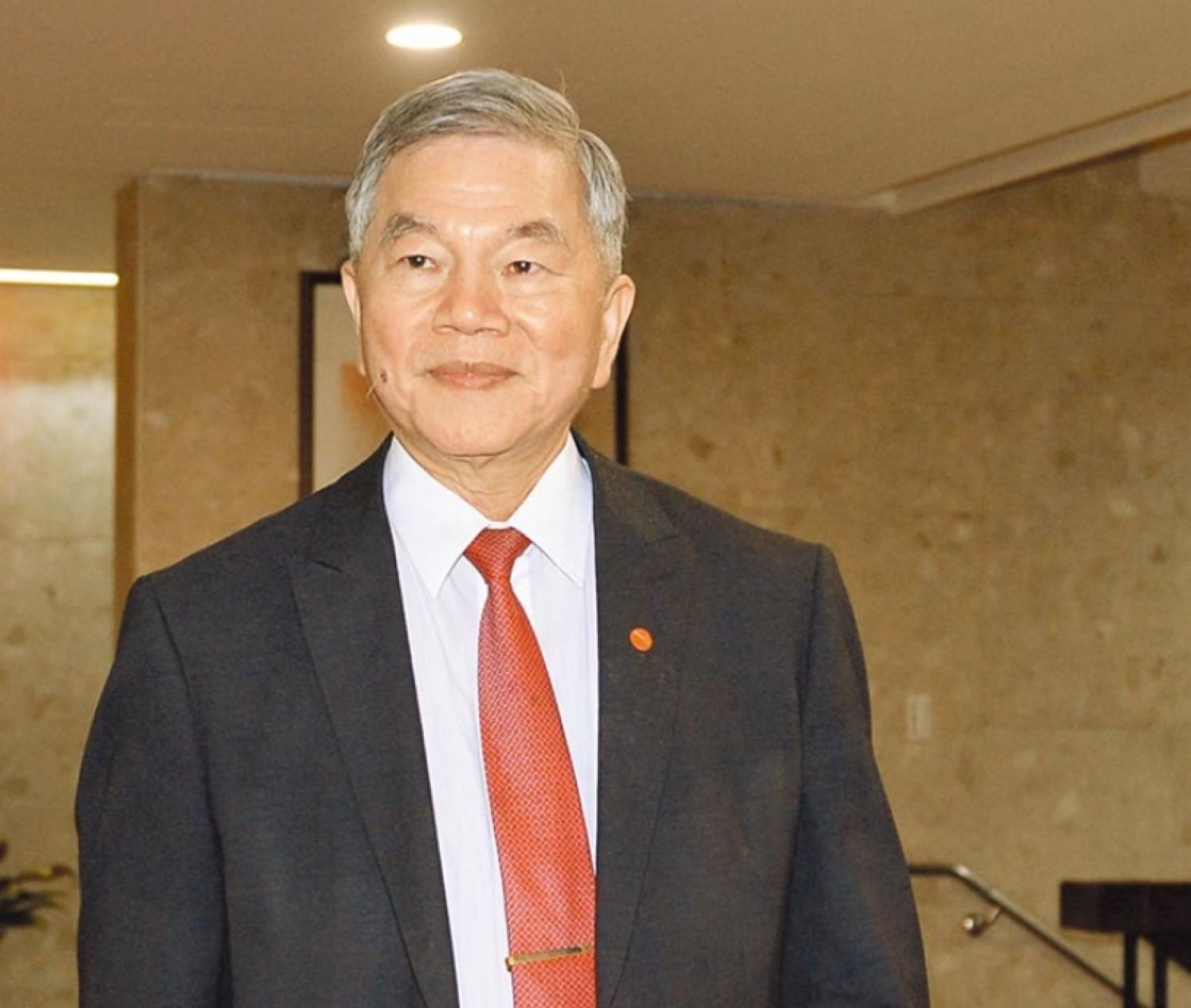
Tsai Administration Undermines Administrative Neutrality
United Daily News Editorial, November 27, 2021
During office hours, Vice Premier Shen Jong-chin participated in a businessmen's meeting organized by the Aerospace Industrial Development Corporation (AIDC), a state-owned enterprise in Taiwan, drumming up support for the government's position on the four-question referendum which deal with referendum dates, pork imports, algal reef protection and nuclear energy. Though Vice Premier Shen undermined administrative neutrality, President Tsai Ing-wen called it "executive bodies as a whole". In addition, Premier Su Tseng-chang followed suit by saying that it was "perfectly justified". Moreover, Chairman Lee Chin-yung of the Central Election Commission (CEC) indicated that the Executive Yuan is the “opposed party” in the four-question referendum, so there was no such thing as breach of administrative neutrality. Deputy Minister of Justice Tsai Pi-chun said it was a dereliction of duty for a political appointee not to speak up when he or she should. It was also a wonder in a democracy that the Tsai administration have deliberately blurred the line between political and administrative responsibilities, treating administrative neutrality as if it were nothing.
The four-question referendum, proposed either by the popular initiatives or the opposition party Kuomintang (KMT), aimed to rectify and remedy for the Tsai administration's paradoxes in policies and failures in governance, yet the Tsai administration has made every effort to mug the freedom of the expression. The closer we cast our ballots on the referendum date, the more serious the Tsai administration's act of trampling on administrative neutrality becomes; the more the public supports the four-question referendum, the more recklessly the government mobilizes public sector resources to denounce them. Not only did the CEC discard the independence of the election authority, but the Ministry of Civil Service also deliberately misinterpreted of the "Law on Administrative Neutrality". Vice Premier Shen was certainly not alone. To say no to the four questions in this plebiscite, the Tsai administration knows no bottom line and no upper limit on the power it can wield.
According to a AIDC’s press release, Vice Premier Shen hosted the "F-16 Maintenance Centre Manufacturers' Meeting" on November 16. He was then briefed by them on the progressive report of each project item, requesting them to continue their efforts. Obviously, the meeting had nothing to do with the referendum, and the said press release did not mention a single word about it. However, Legislator Johnny Chiang of the KMT broke the news at the Legislative Yuan the following day, questioning Shen’s objection to the four questions in the referendum in his speech at AIDC. "Why did he talk about the referendum?" In other words, as vice premier, Mr. Shen had abused his official duties by saying no to the four questions. He took advantage of the state-owned enterprise, supervised by the Ministry of Economic Affairs, to set up a stage for this purpose, while brainwashing them to yield to the government's positions.
Although Vice Premier Shen was criticized, the Tsai administration from top to bottom was very defensive. President Tsai even said that the executive branch must defend the government's policies and that views of their colleagues run in the same groove. Since President Tsai has positioned the principle of "executive bodies as a whole" as an iron dome and issued a mobilization order that "everyone should come out and speak", she has really violated administrative neutrality. As public opinion challenged Tsai administration, she must go against public opinion and let the propaganda of saying no to the four questions spread everywhere.
As expected, Minister Tung Chen-yuan of the Overseas Community Affairs Council held a video conference with the president of the World Taiwanese Chambers of Commerce, while referring to the Taiwanese businessmen's concern that the ban on ractopamine-fed pigs would prevent Taiwan from joining the Comprehensive and Progressive Agreement on Trans-Pacific Partnership (CPTPP). The KMT accused the cabinet-level OCAC of violating administrative neutrality; however, the ruling Democratic Progressive Party (DPP) defended its position that it was due to the principle of "executive bodies as a whole". Minister Tung also cited the CEC, Ministry of Civil Service, and Executive Yuan as having publicly stated that all government ministries are responsible for helping make their positions crystal clear.
The Tsai administration's war on the referendum questions has turned out to be a war fraught with asymmetrical information and unequal resources and has even suppressed administrative neutrality and contravened Code of Ethics for civilian servants. Due to political power shift in Taiwan for three consecutive times, civil servants are supposed to toe the line of administrative neutrality: they are to implement national policies rather than political party’s policies; even though it is a national policy, if it is overturned by a referendum, the executive branch must follow through the general will of the people. However, under the Tsai administration, the DPP's ignorance about the separation between party and government has been a big tilt toward "my nation is really my home". As for public servants in Taiwan, they are all treated like private servants of the ruling party.